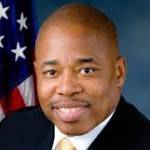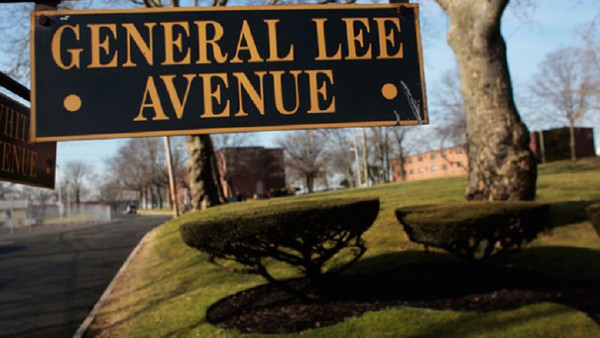As the country continues to confront the legacy of American slavery, Borough President Eric Adams said that two streets named after confederate generals at the Fort Hamilton Army Base in Bay Ridge should be renamed.
The streets are General Lee Avenue named for General Robert E. Lee and Stonewall Jackson Drive. Lee, the commanding general of the Confederate Army, was stationed at the base from 1841-46.

“We can no longer accept a single government site in this nation, not a street, school, or military installation, named for an individual who fought to preserve slavery in America. Any symbol that may be used to create division and discord is a potential danger to our civic unity and should be treated as such. I am calling on the Department of the Army and members of Congress to take immediate steps to rename General Lee Avenue and Stonewall Jackson Drive at Fort Hamilton,” said Adams.
“Fort Hamilton has a proud history in Brooklyn of protecting our shores and preserving our freedom; let us commission a panel of historians and local leaders to determine heroes truly befitting of having their names memorialized inside this post,” he added.
Adams comments came on the heels of similar comments that Congressman Hakeem Jeffries told Business Insider as reported in the Bensonhurst Bean news website.

“Brooklyn is one of the most diverse counties in America, with sizable communities of color. There is no good reason for a street to be named after an individual who led the Confederate Army in the fight to keep slavery and racial subjugation alive in America,” Jeffries told Business Insider. “It is my hope that we will do the right thing and find an appropriate local hero for whom the street can be renamed.”
Adams and Jeffries’ comments come following June 17’s deadly terrorist attack that left nine people dead at an African Methodist Episcopal (AME) Church in Charleston, South Carolina. The alleged killer, Dylan Roof, appeared in photos on websites waving Confederate flags and visiting Confederate heritage sites.
That incident renewed a call to remove all Confederate flags and names from government property, as several are flown in state and municipal houses around the south.
It also comes as the United States continues to struggle with the legacy of American slavery in regards to socio-economic conditions, policing in black neighborhoods, and education among other issues.

Photo Credit: Madeleine Ball, NYC COUNCIL
A point not lost on Mayor Bill de Blasio, who with East Flatbush City Councilman Jumaane Williams and others, Saturday, unveiled a plaque in Manhattan on the corner of Wall Street and Water Street marking the site of the colonial-era Wall Street slave market.
“To build a just future, we must understand the injustices of the past. Although it is not a proud moment in our city’s history, slave labor played a role in New York City’s development, and it must be acknowledged,” said Mayor Bill de Blasio. “This plaque commemorates the suffering and the contributions of those who passed through the Wall Street slave market.”.
People of African descent were sold into bondage at the slave market, which operated from 1711 to 1762 by order of the Common Council. Under consecutive Dutch, British and American rule, slave labor was used in New York City homes and industries, including farming and public works. Although the transatlantic slave trade was outlawed by the U.S. Congress in 1807, not all slaves were freed in New York until 1841.










